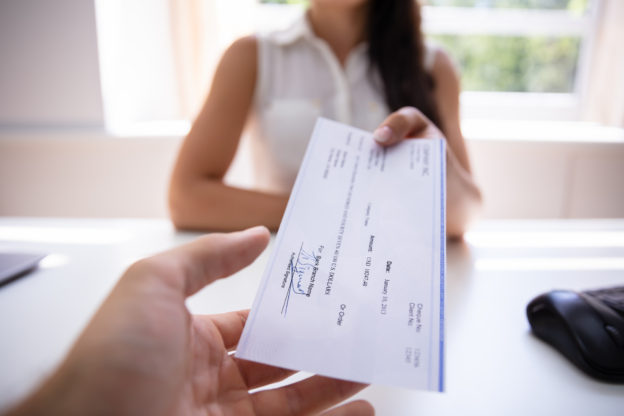In today’s digital world, you may think checks are a thing of the past. When in reality, the truth couldn’t be farther away from that. For more than one transaction, it might be best to use a check instead of electronic alternatives.
1. When You Hire a Contractor
Paying a contractor with a check, whether you’re working with interior designers, gardeners, landscape architects, and other high-priced projects with contractors is probably safer and better. Using a check to pay a contractor ensures your payment is genuinely going toward buying the project’s materials and paying for the labor needed to complete that project.
Not to mention, it’s a better way to keep track of exactly where your money is going. Remember to indicate each check’s amount and purpose in the memo section of your checkbook to keep everything organized.
2. When You Work With Freelancers
Not all self-employed individuals have electronic payment systems in place. If they do, it’s unlikely that they’ll offer a secure payment method that will protect your information. So, if you’re working with tutors, freelancers, and other self-employed individuals, a check is always the safest option to pay them.
Additionally, small businesses or self-employed contractors might prefer checks or cash over electronics. Using a credit or debit card processing system comes with hefty fines that they can’t afford.
3. For Rent & Security Deposits
Paying the rent with a personal check gives you proof of payment once the bank cashes a check. While it’s a good idea overall to get a receipt for every rental payment, using a check lowers your risk of a dispute with your landlord. Also, some landlords request a money order for security deposits. However, personal checks are less costly than money orders.
Some banks can charge up to five dollars for a money order, non-bank money orders can go for about a dollar, but you still have to travel to a location to request the money order. Having your checkbook updated is the easiest and safest way to pay for rent and security deposits without a hassle.
4. Paying Your College Tuition
While most colleges allow credit card transactions to pay with tuition, these come with a hefty 2.5 percent fee or more. Instead, paying with a check takes away the payment processing fee, it has faster payment processing times, and it also leaves a paper trail that can be used for any disputes in terms of late-payment costs.
Keep in mind, though, if you’re mailing your checks, look at the timeline for payment to make sure the school receives the payment in time for processing.
5. Venue Deposits
If you need to trace a large payment for something like a venue deposit, using a paper check is best. The most significant benefit of using a check over electronic payment is that you can make sure your payment was received.
You’ll also have a receipt of the cashed check so that you can use it for proof-of-payment. It can also help you prevent any late fees since the transaction dates will be available in your bank account.
6. For Down Payments on Cars
For large purchases like a down payment on your car, using a check is always preferred. Because the transaction of buying a car involves proof of income and other security processes, making a down payment with a check draws funds from your bank account and gives you the document required to show where the funds are coming from at the same time.

